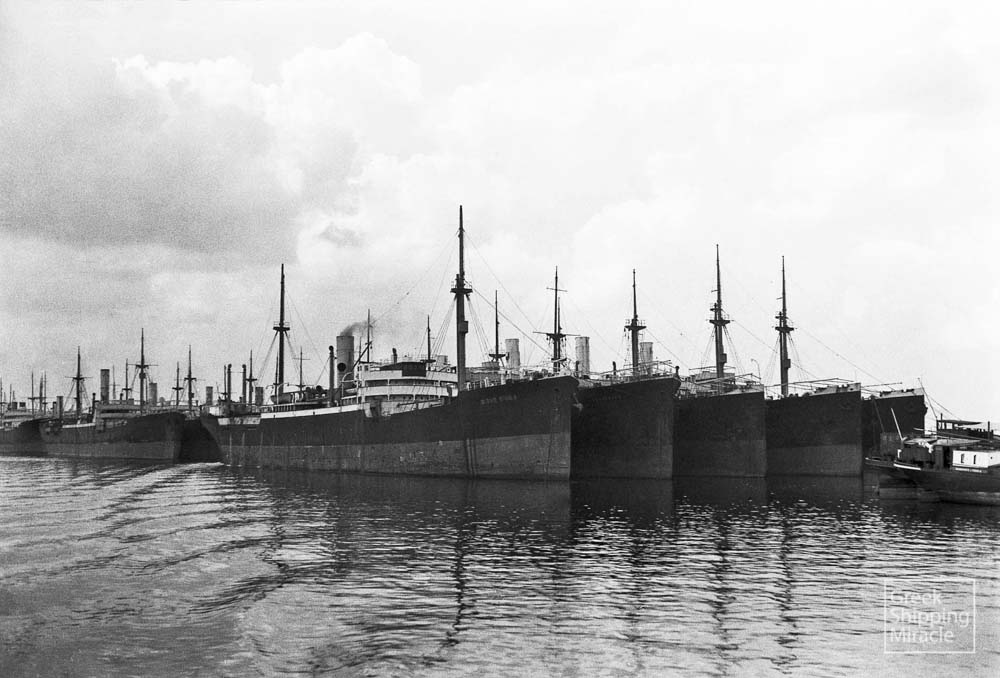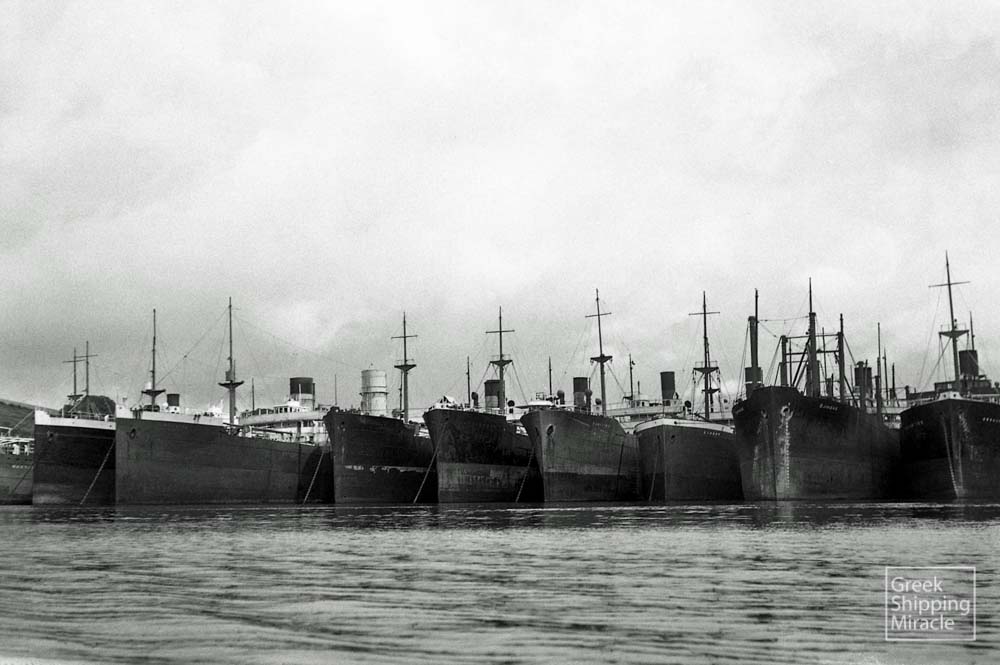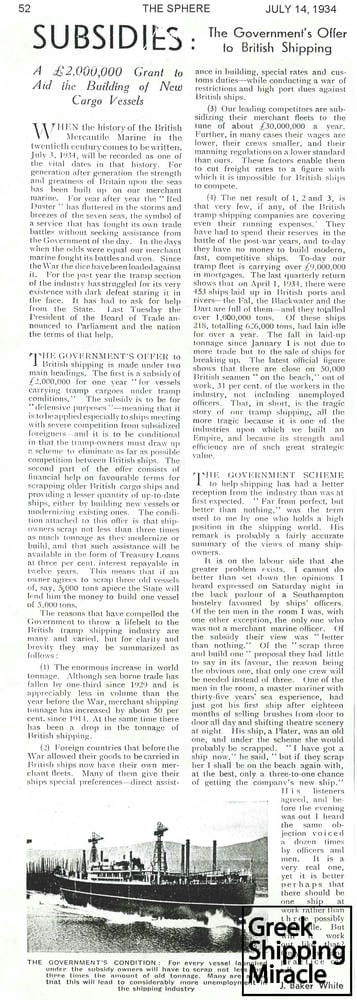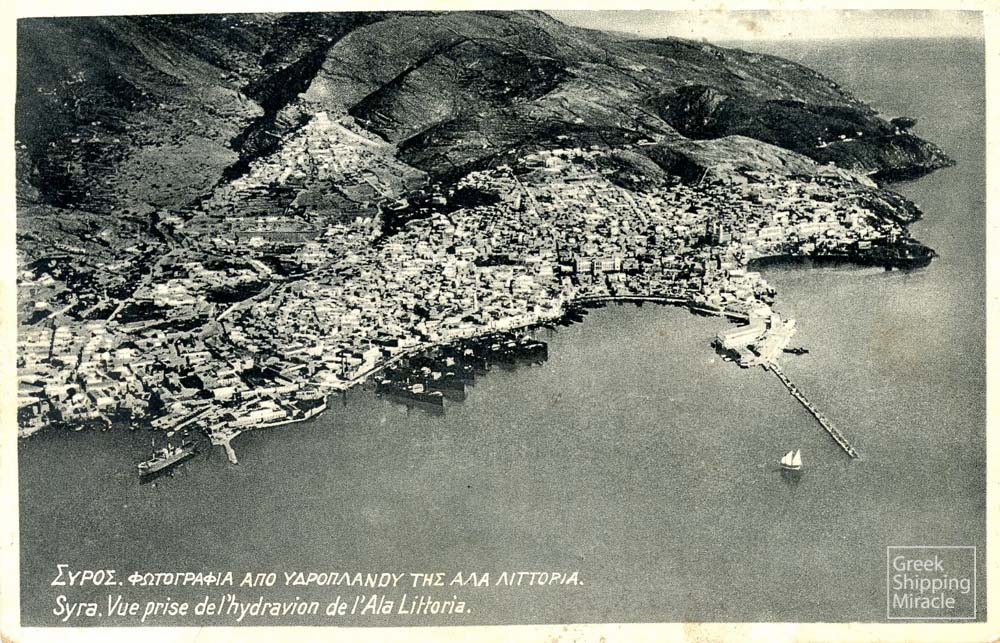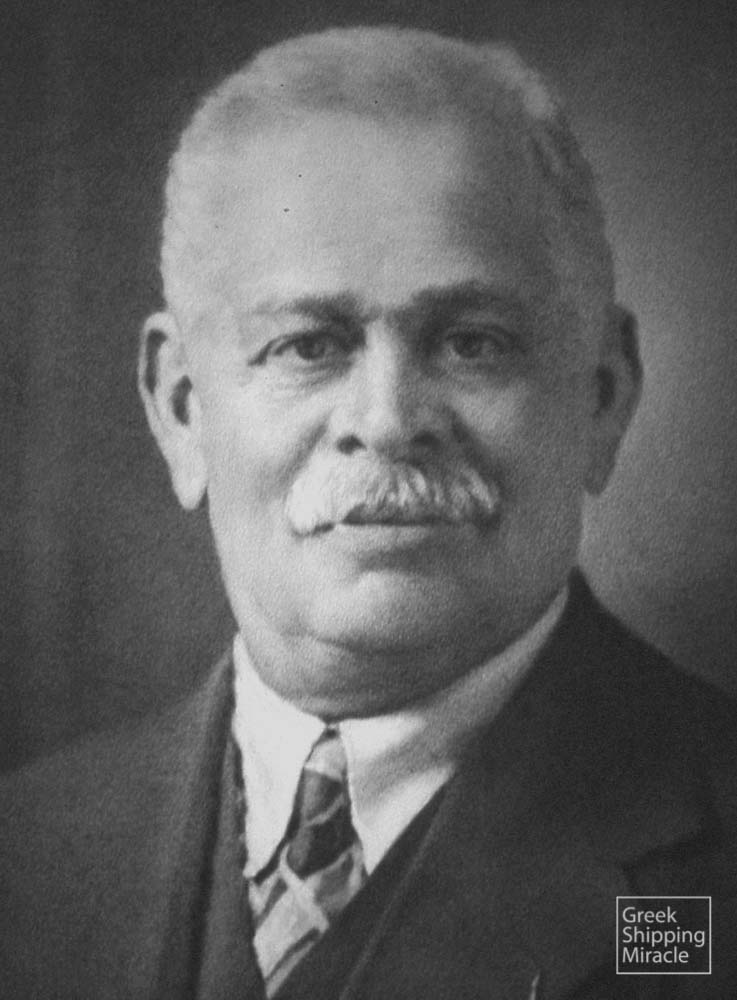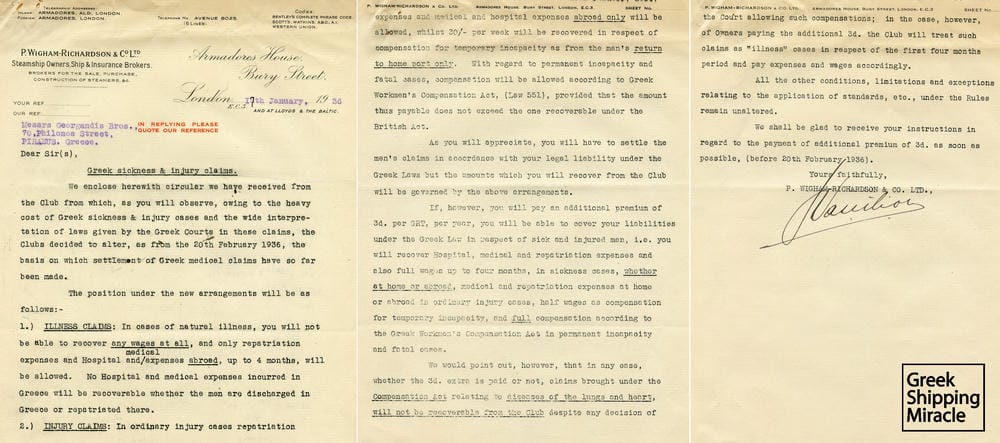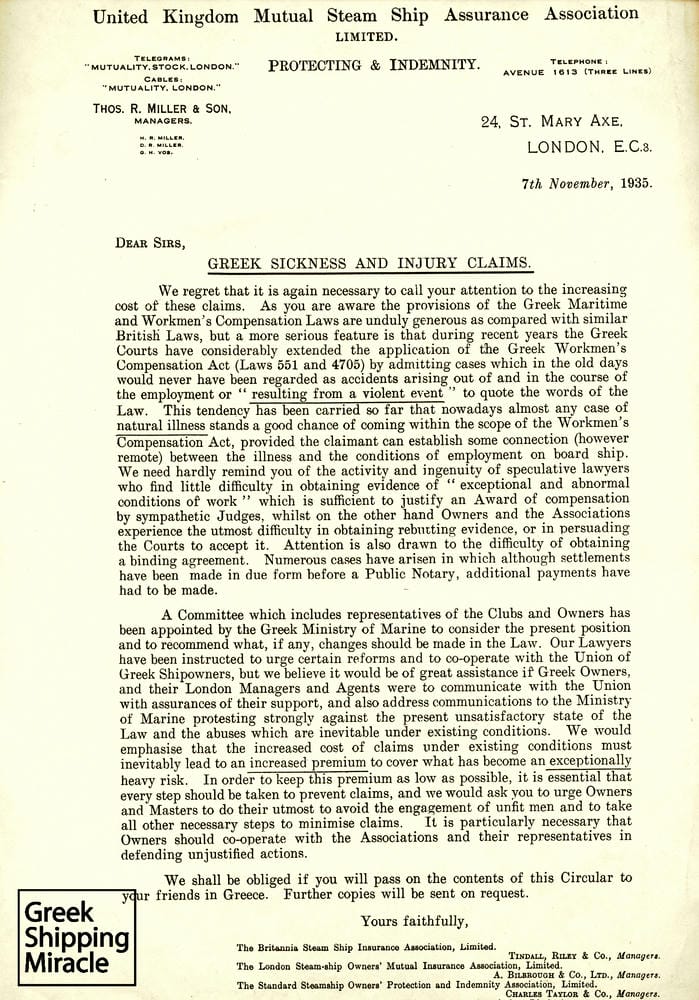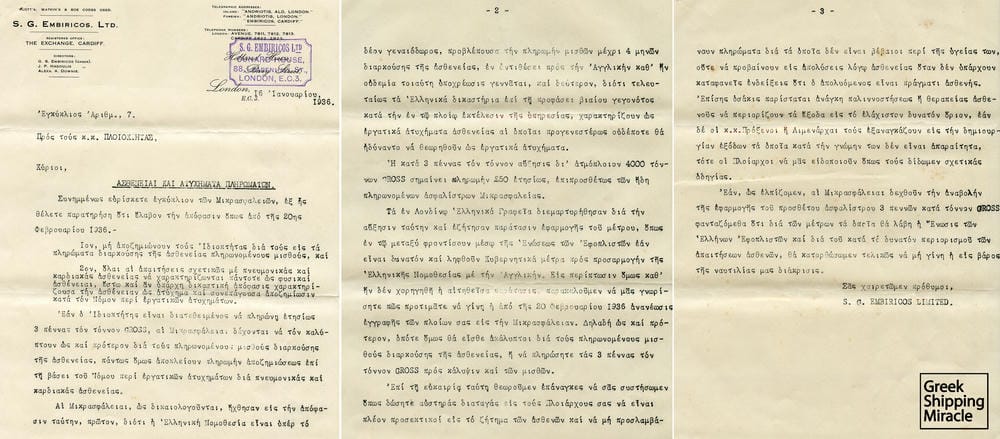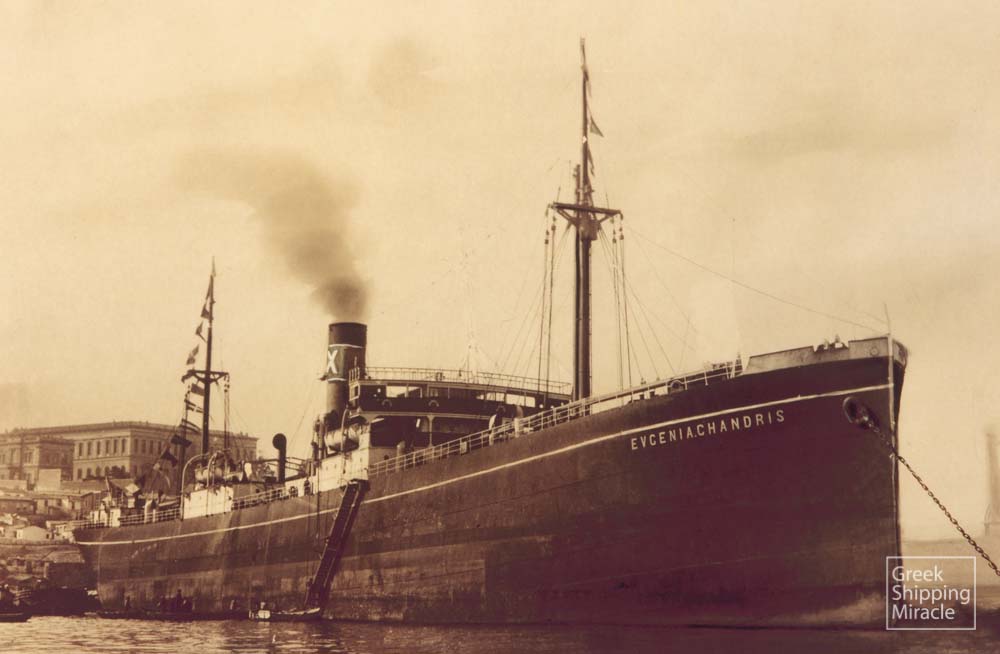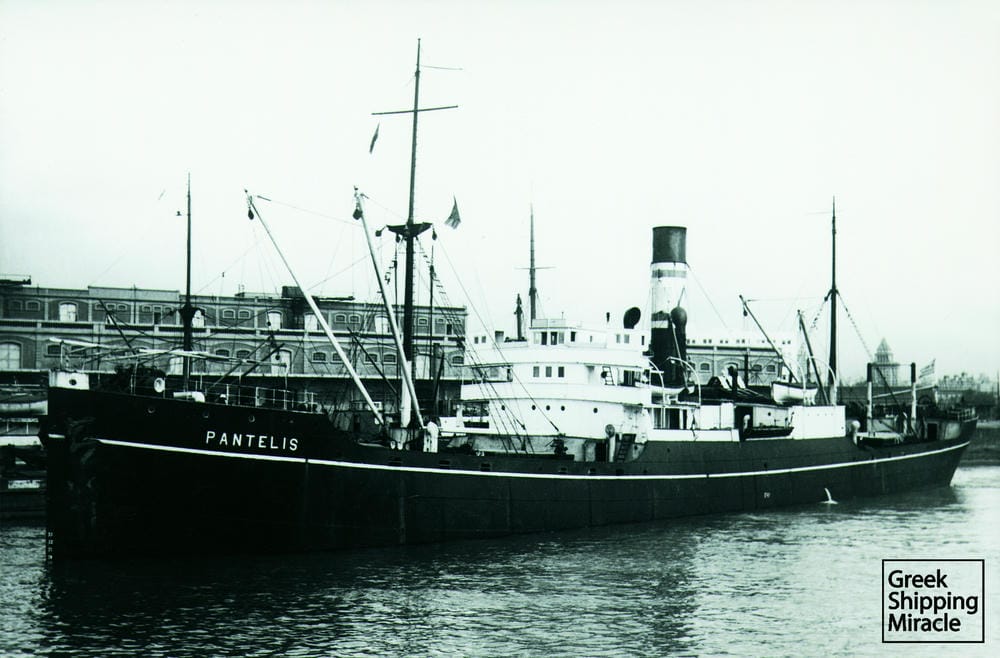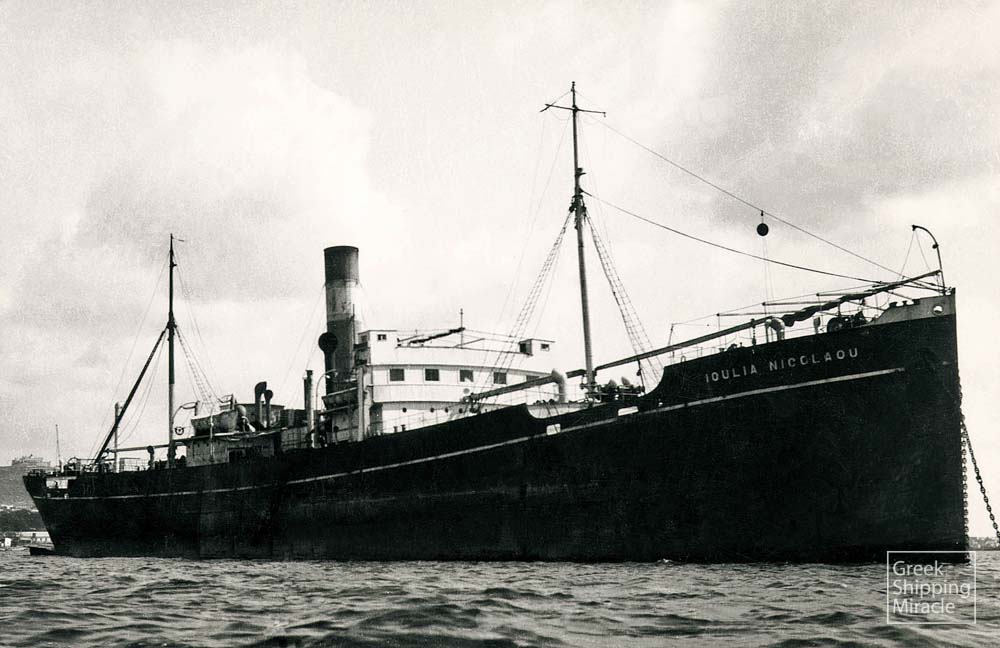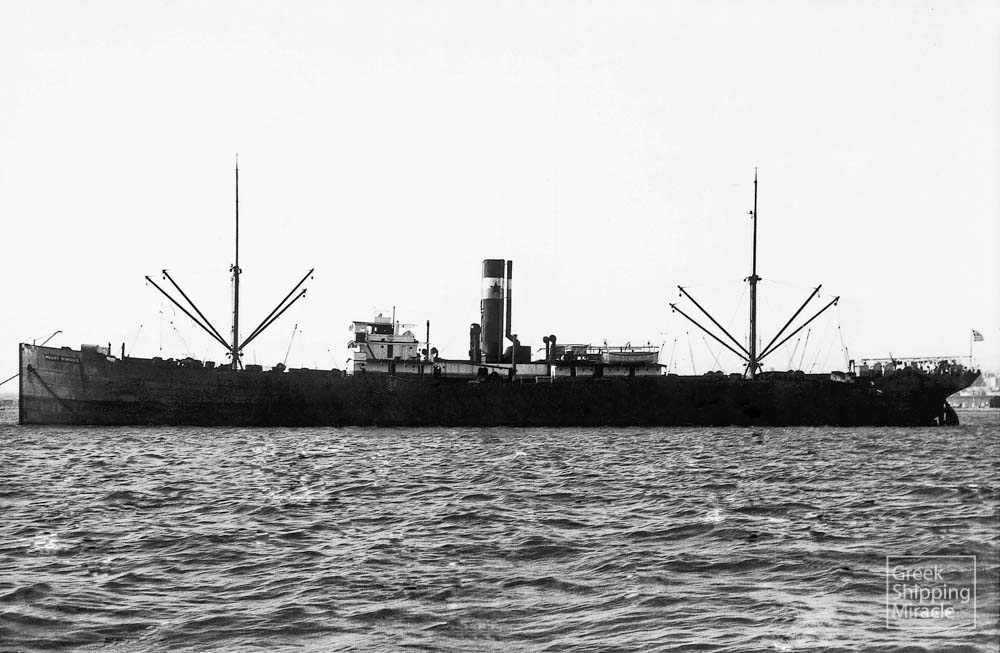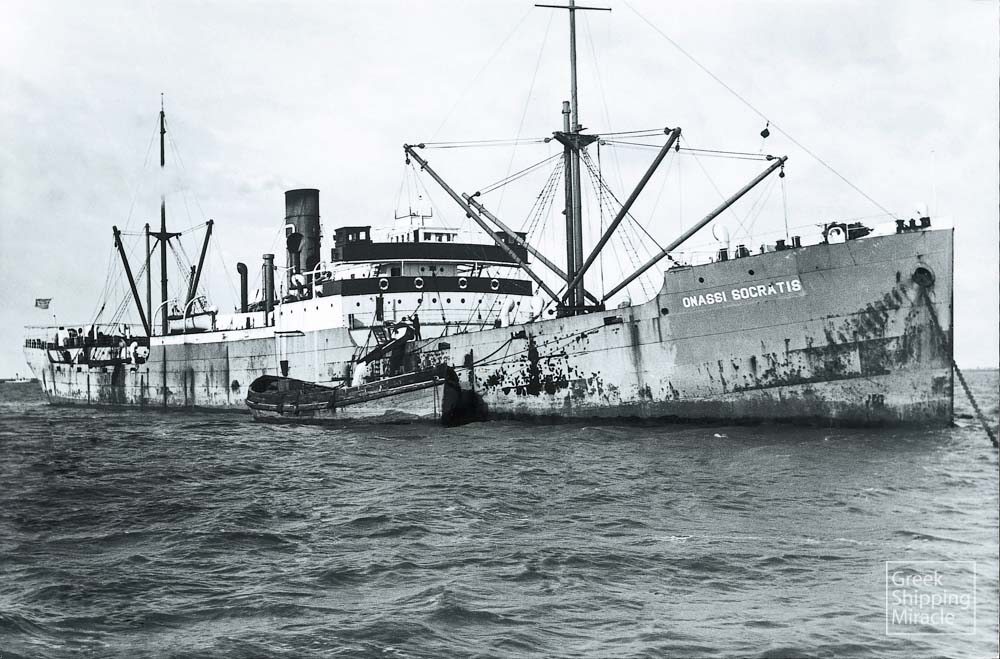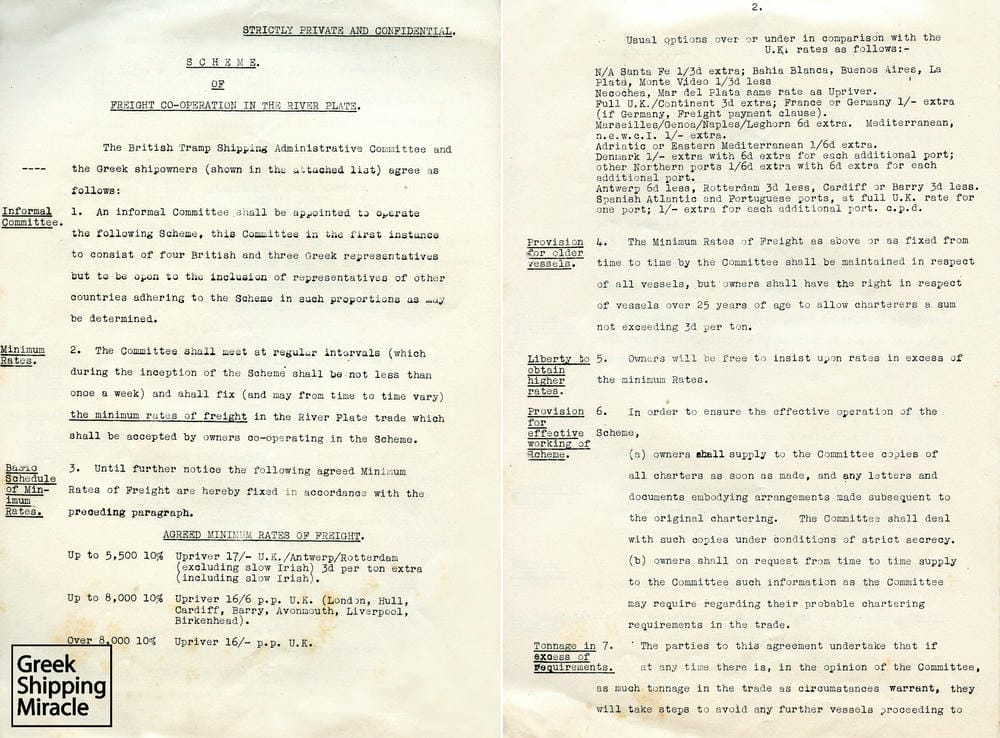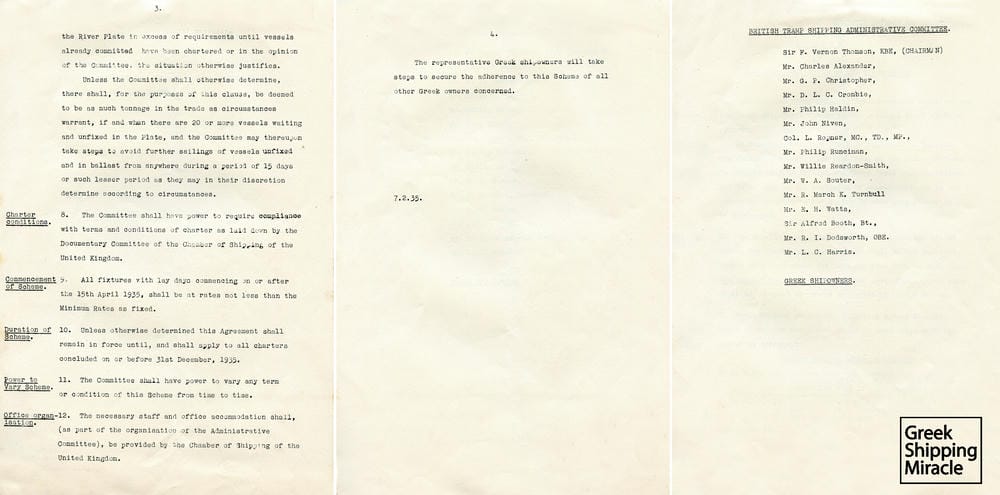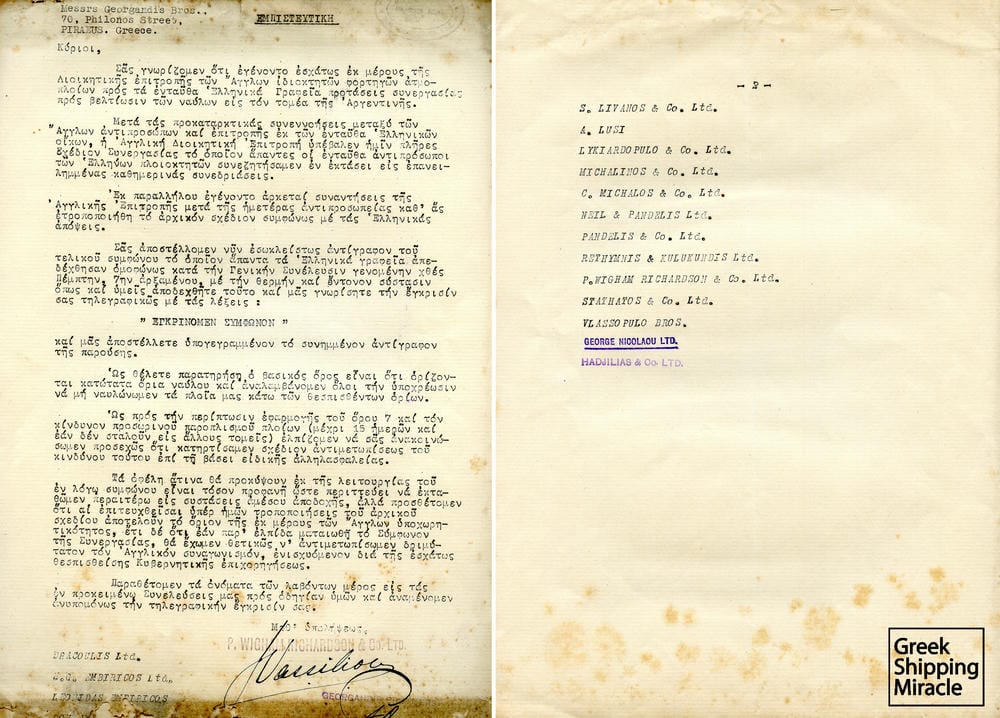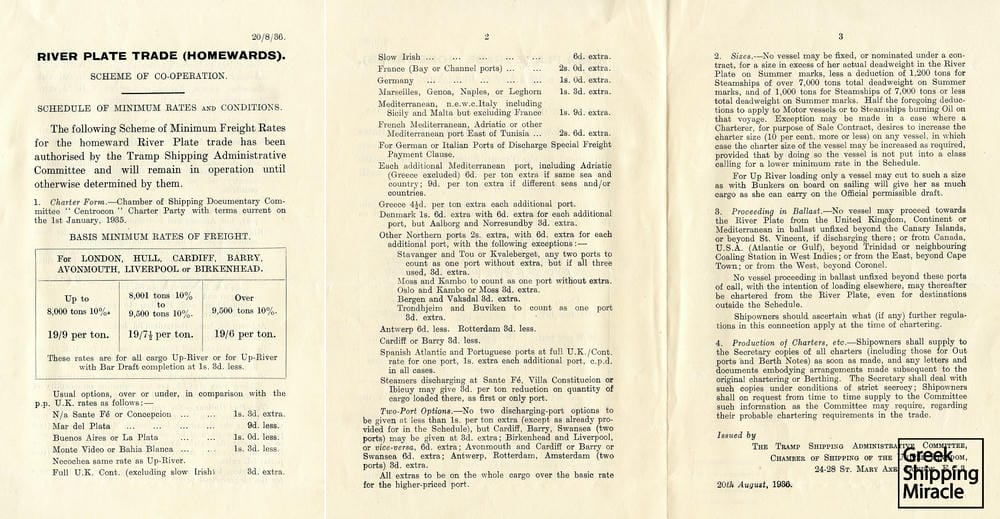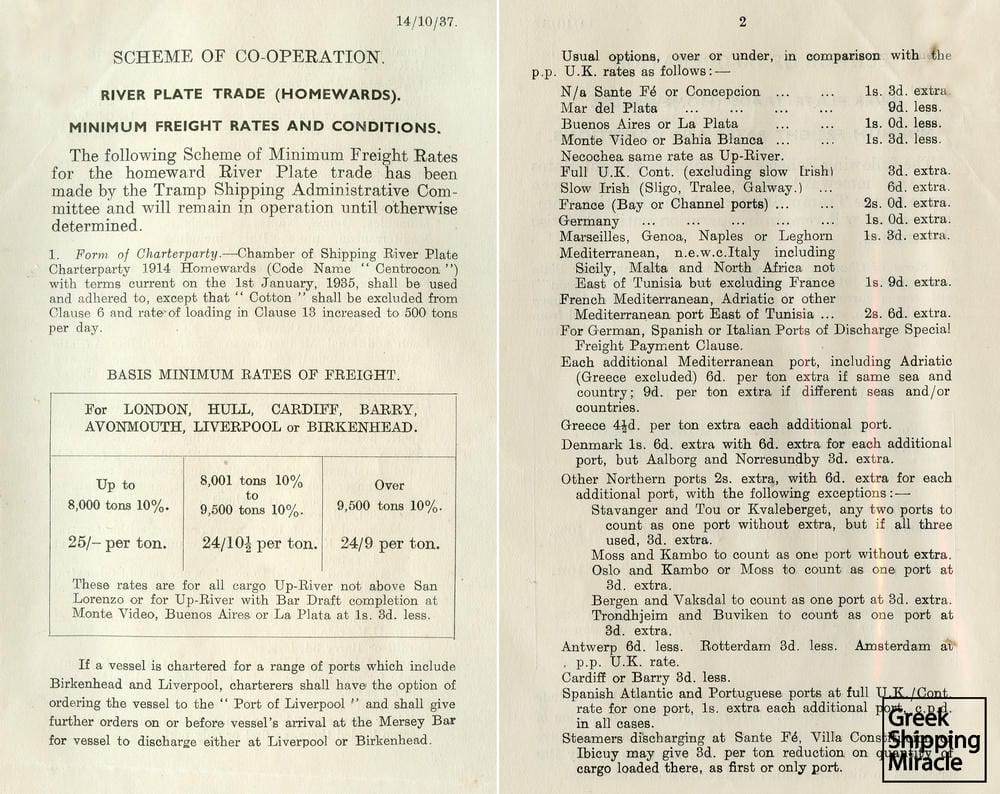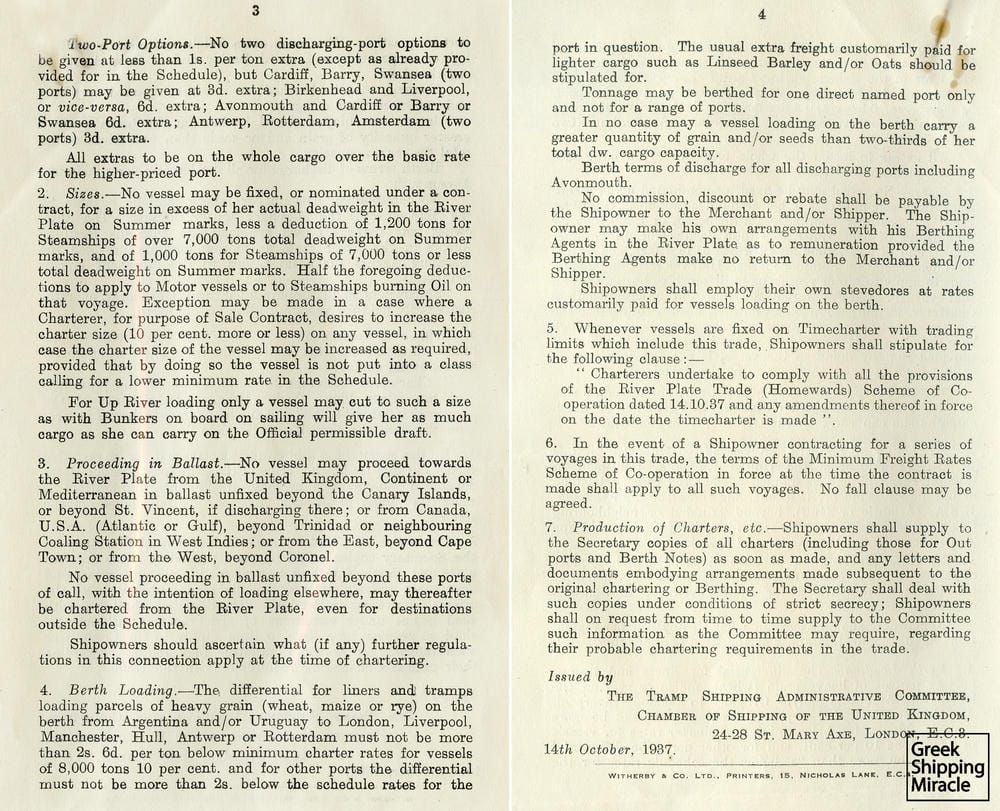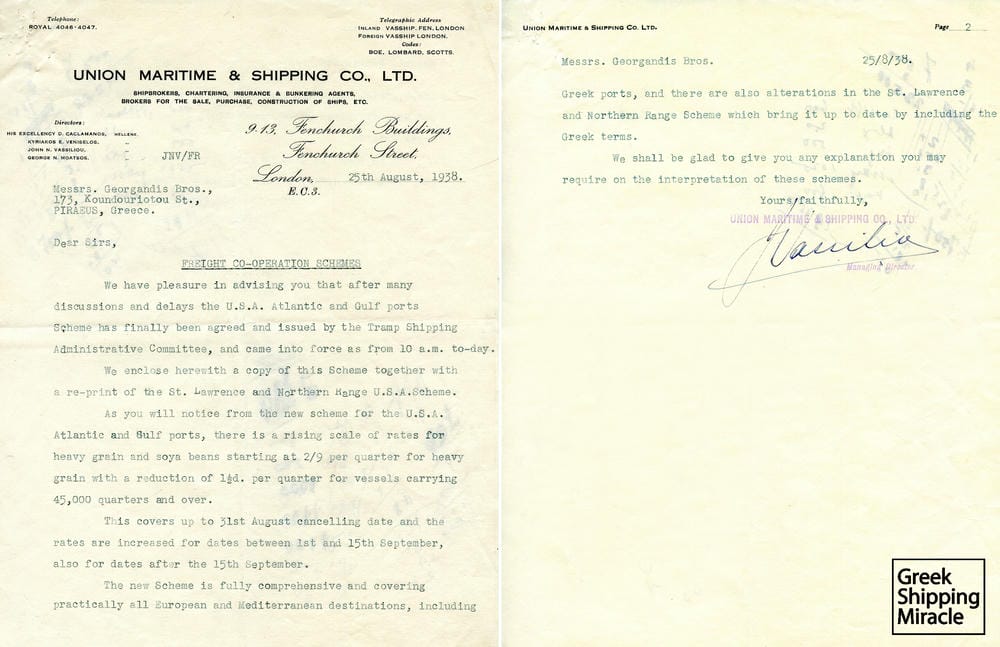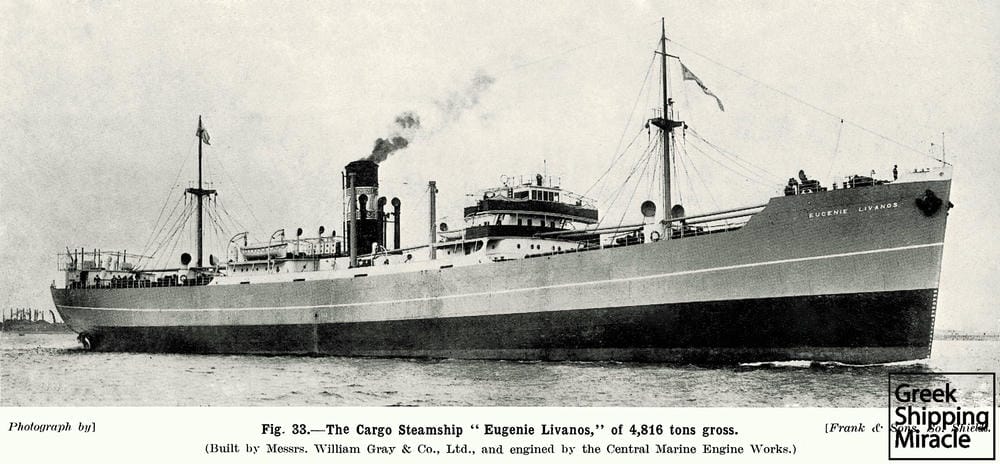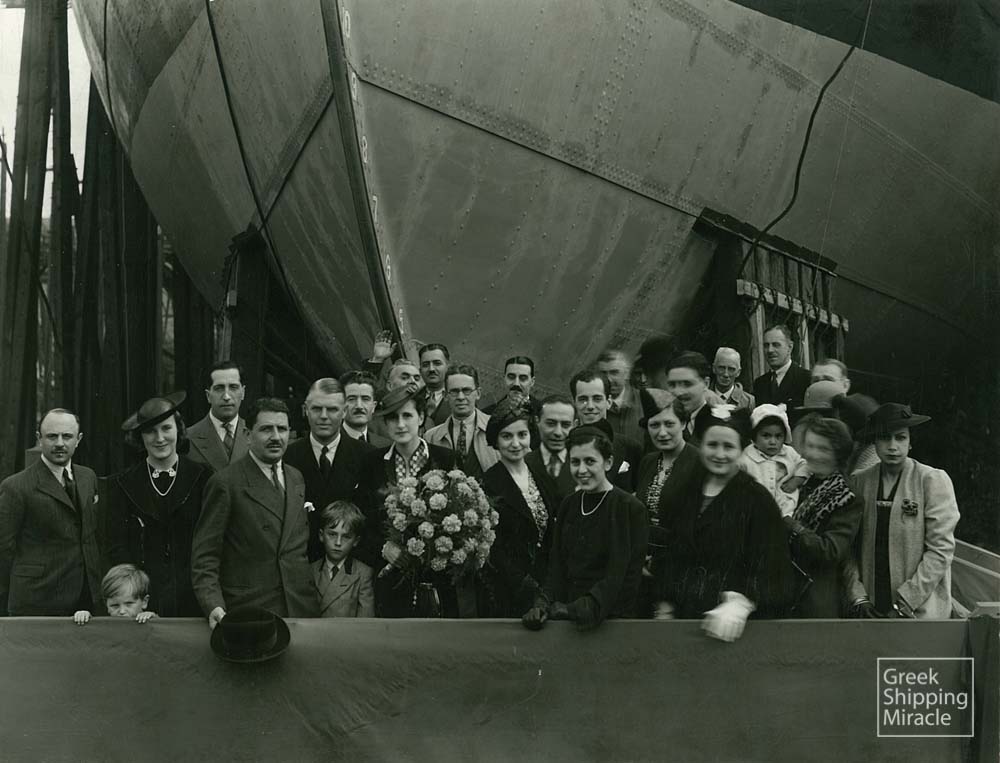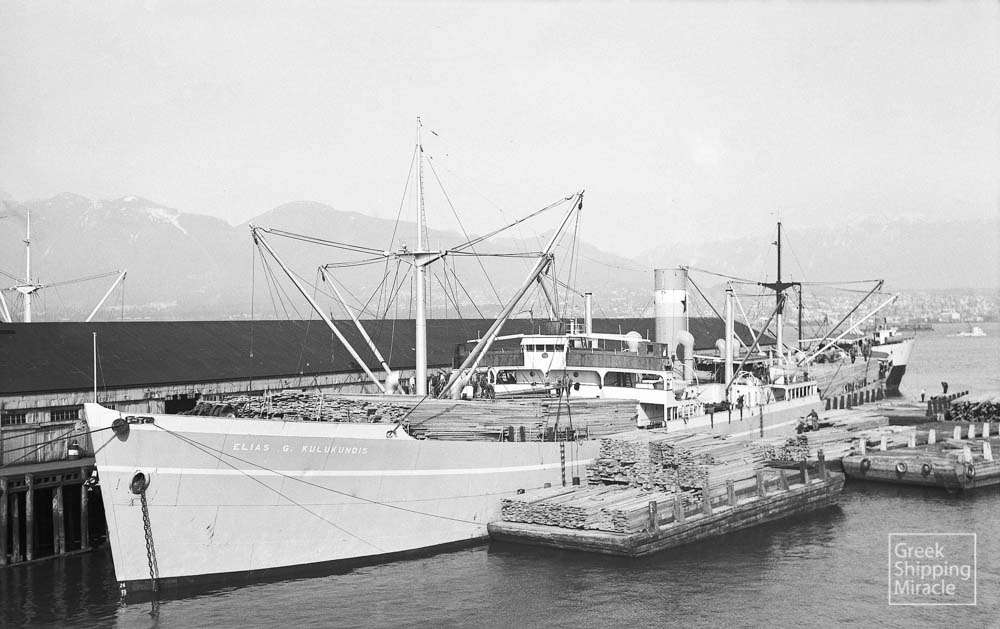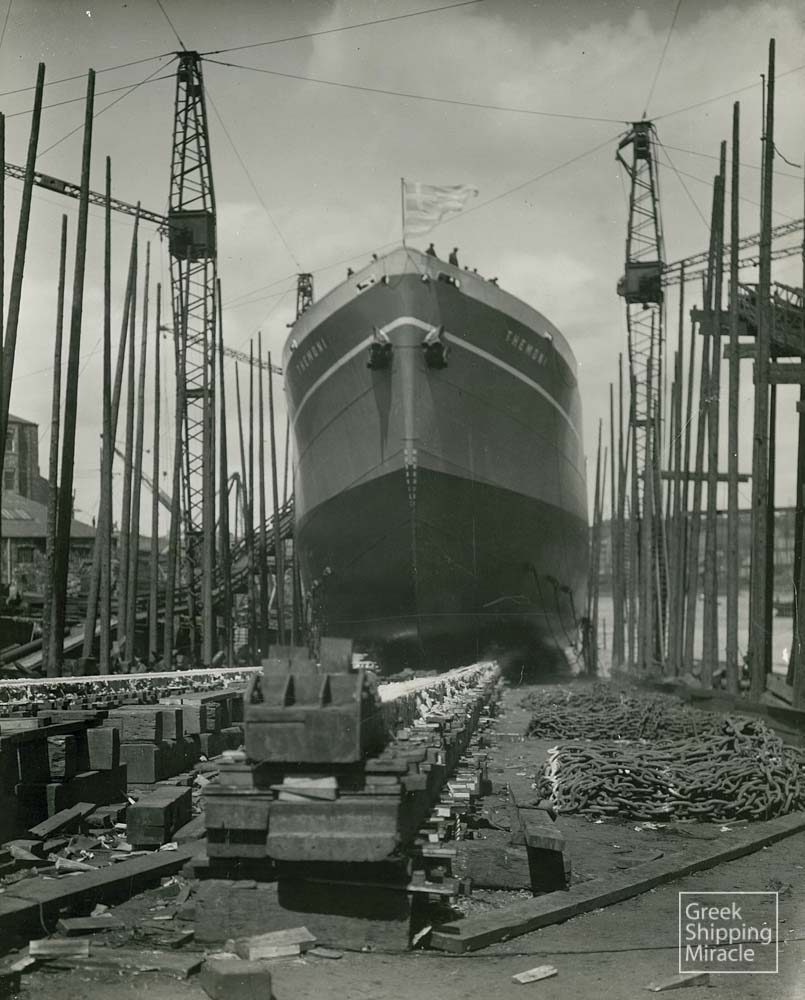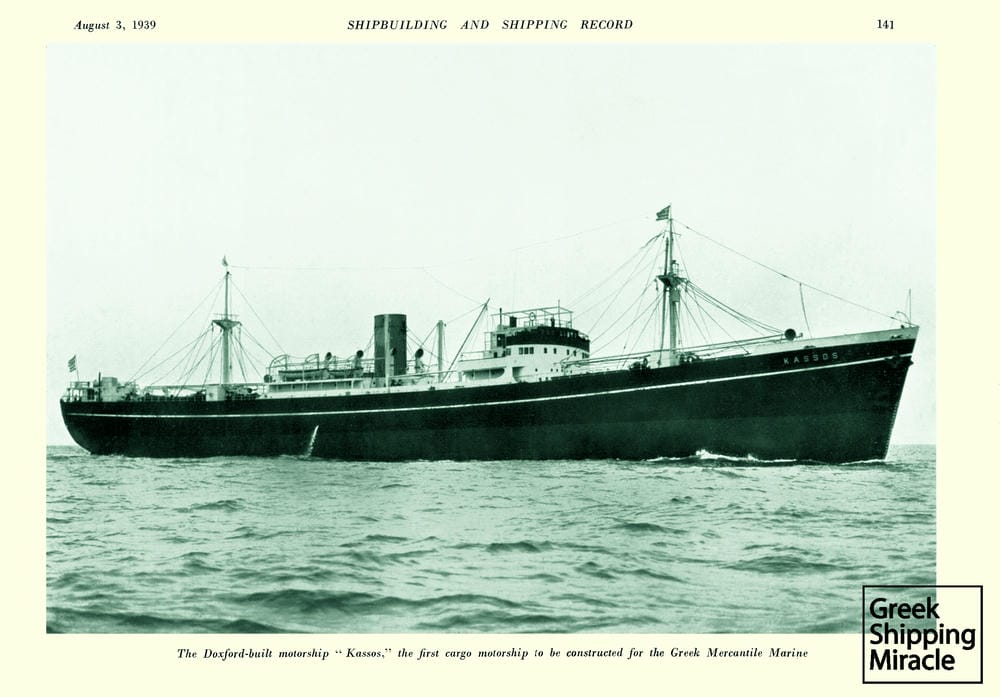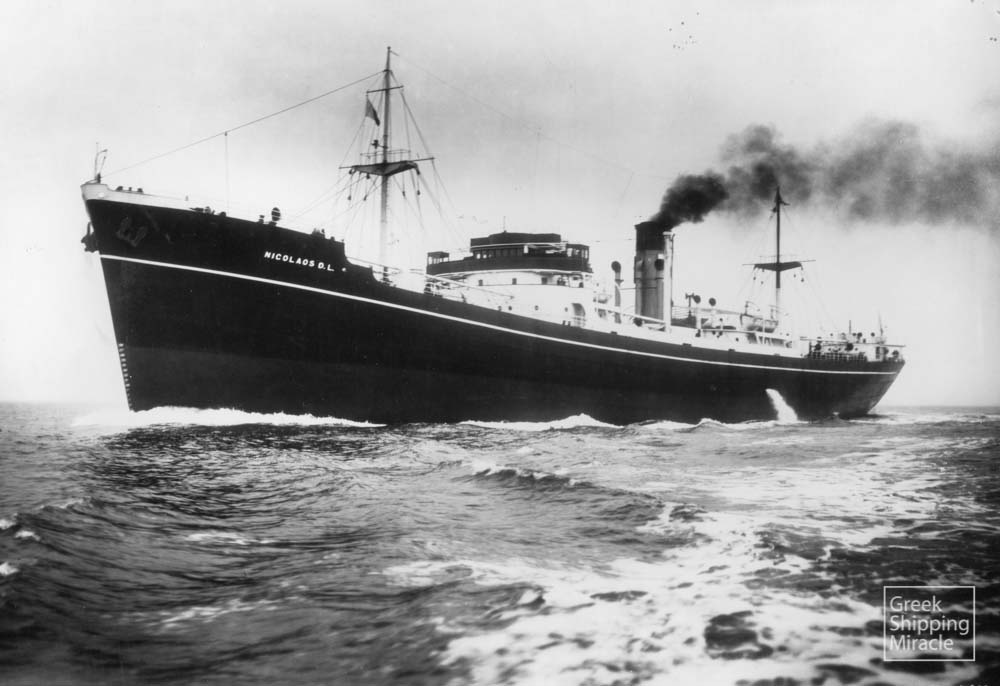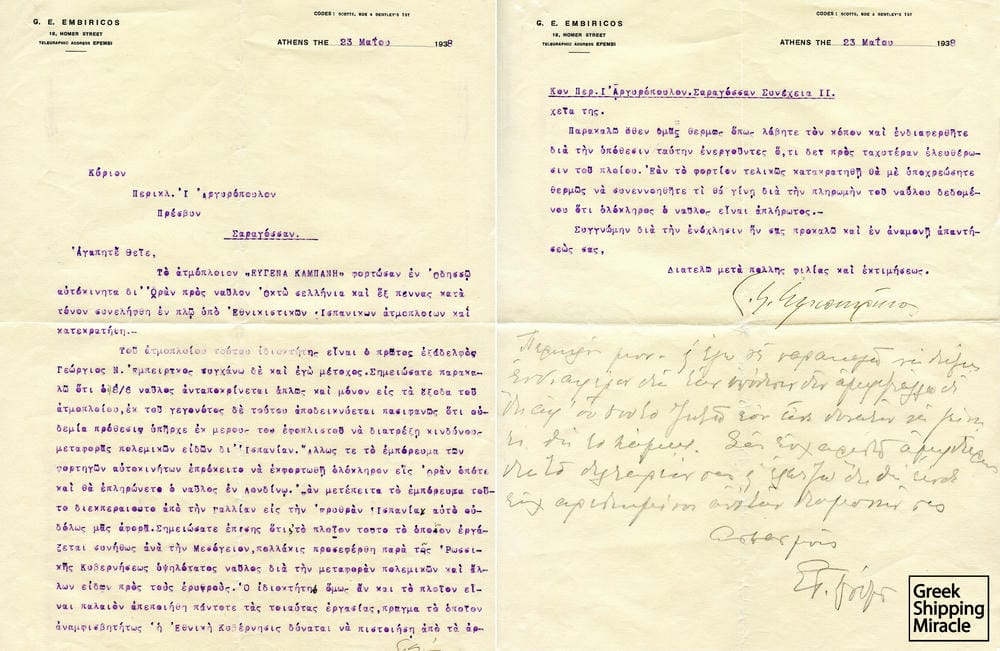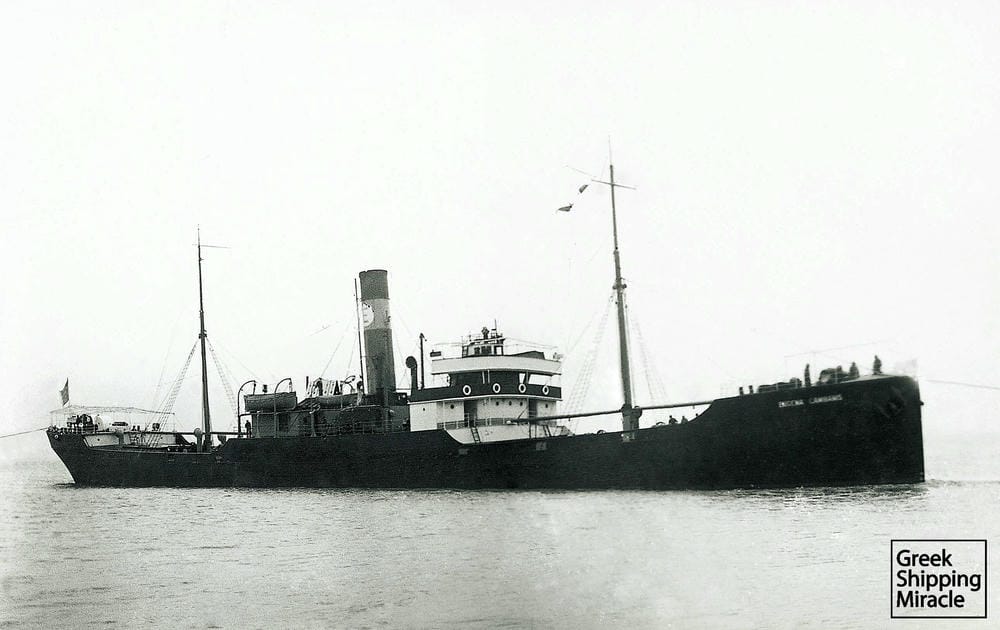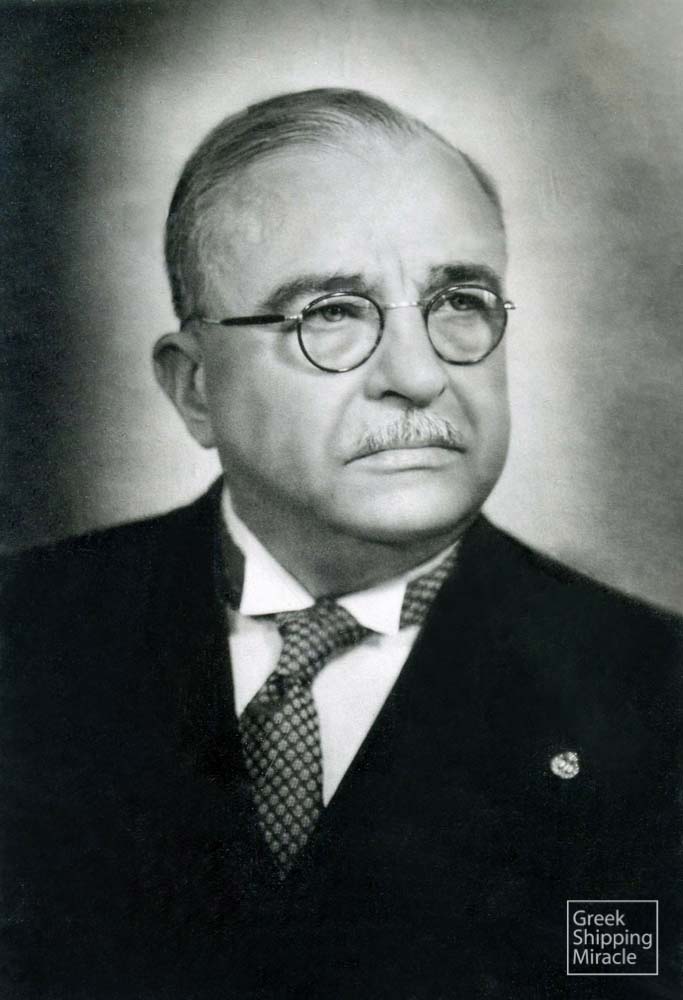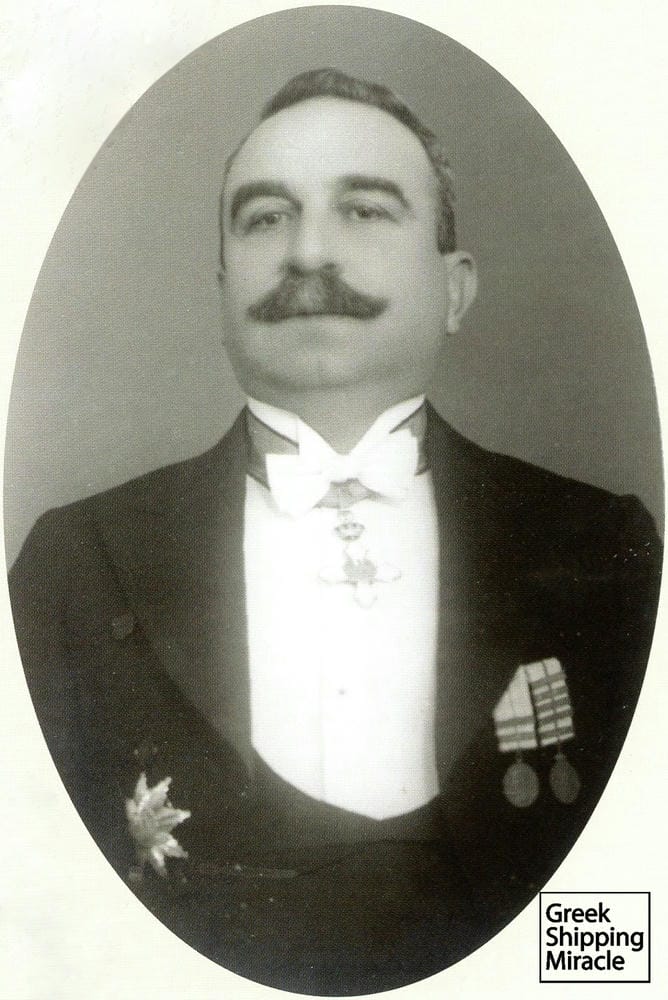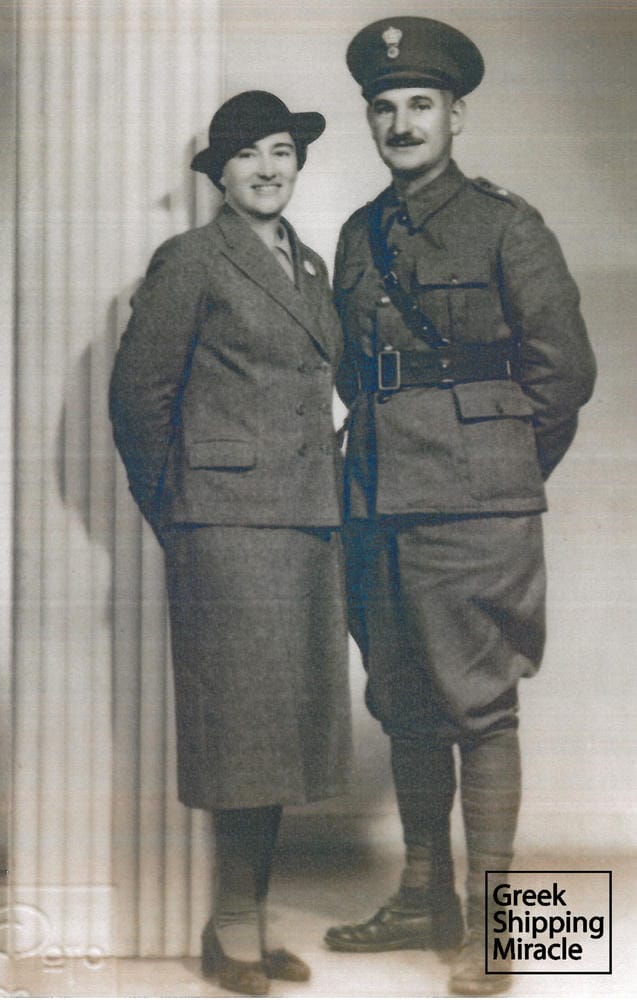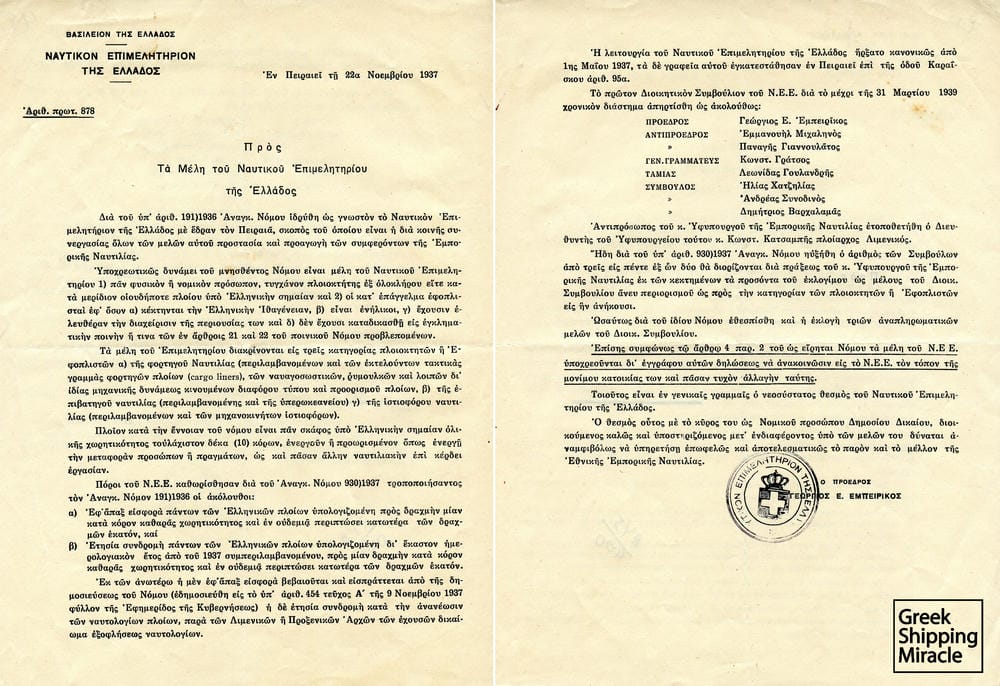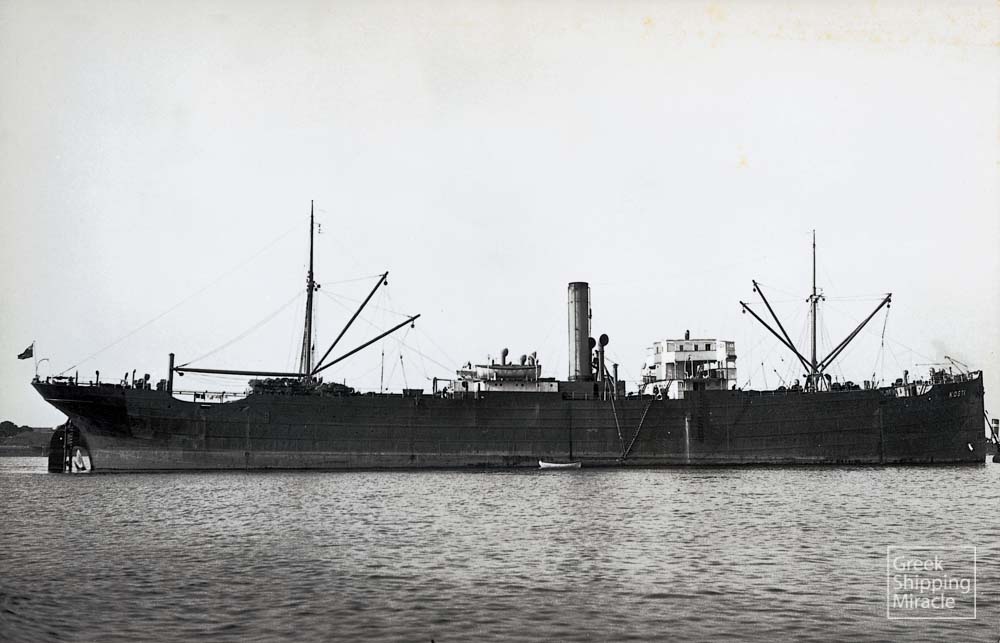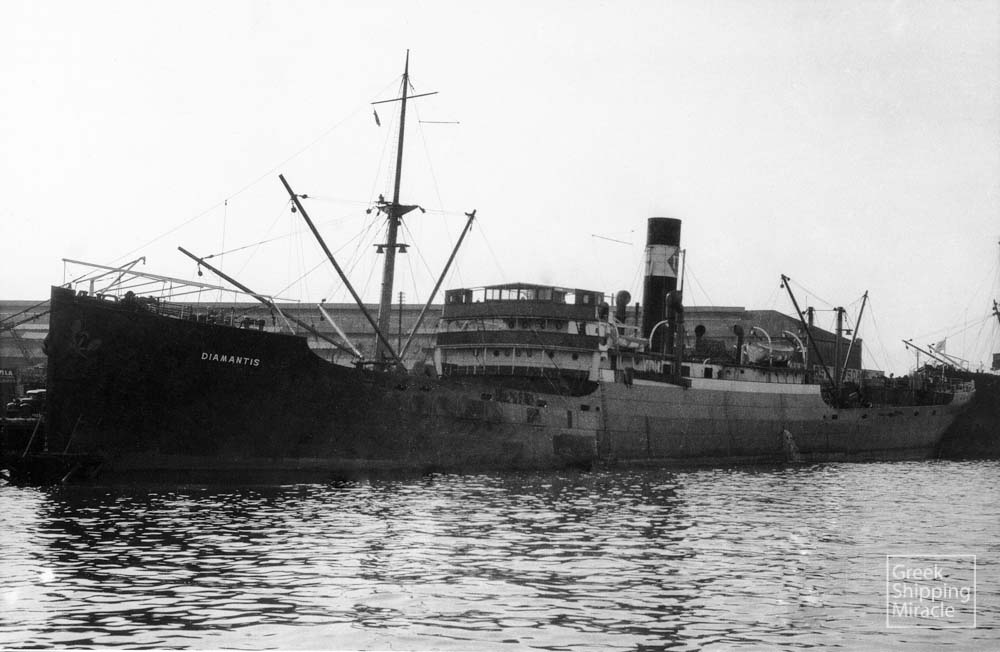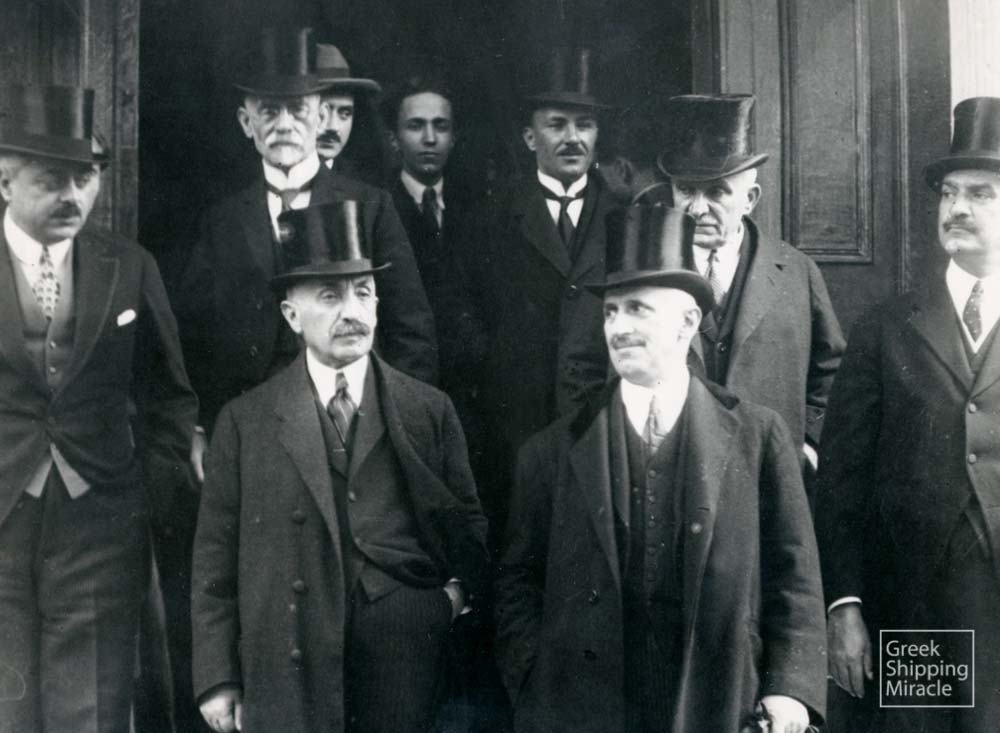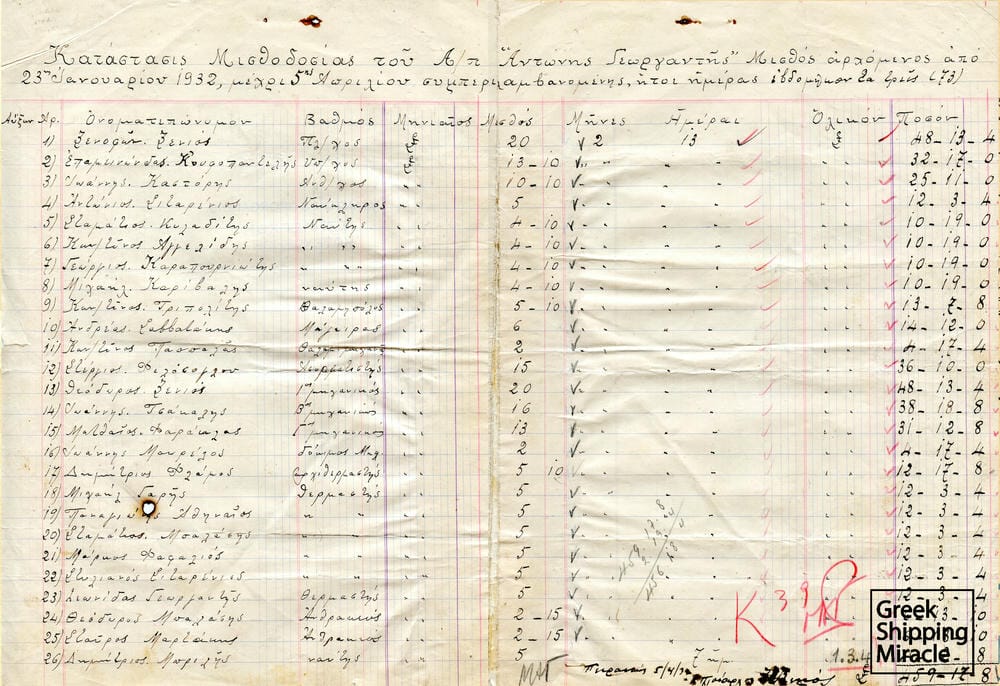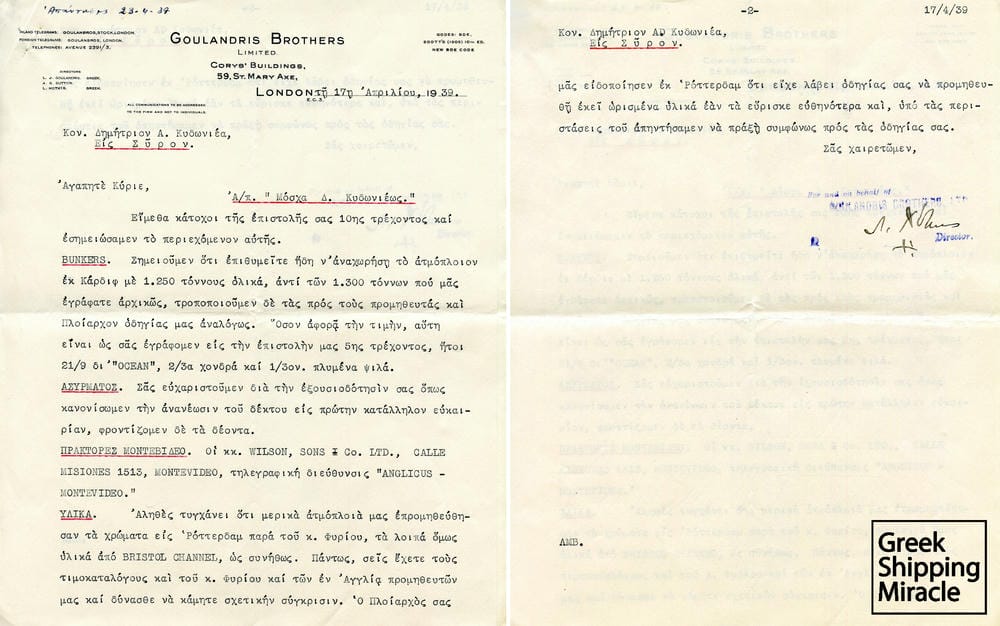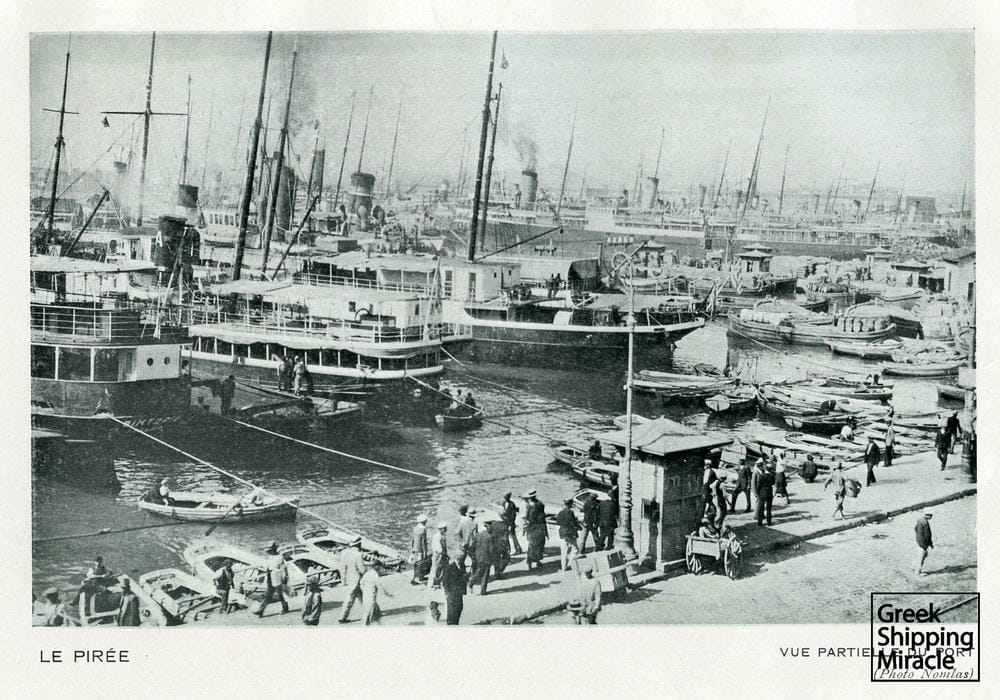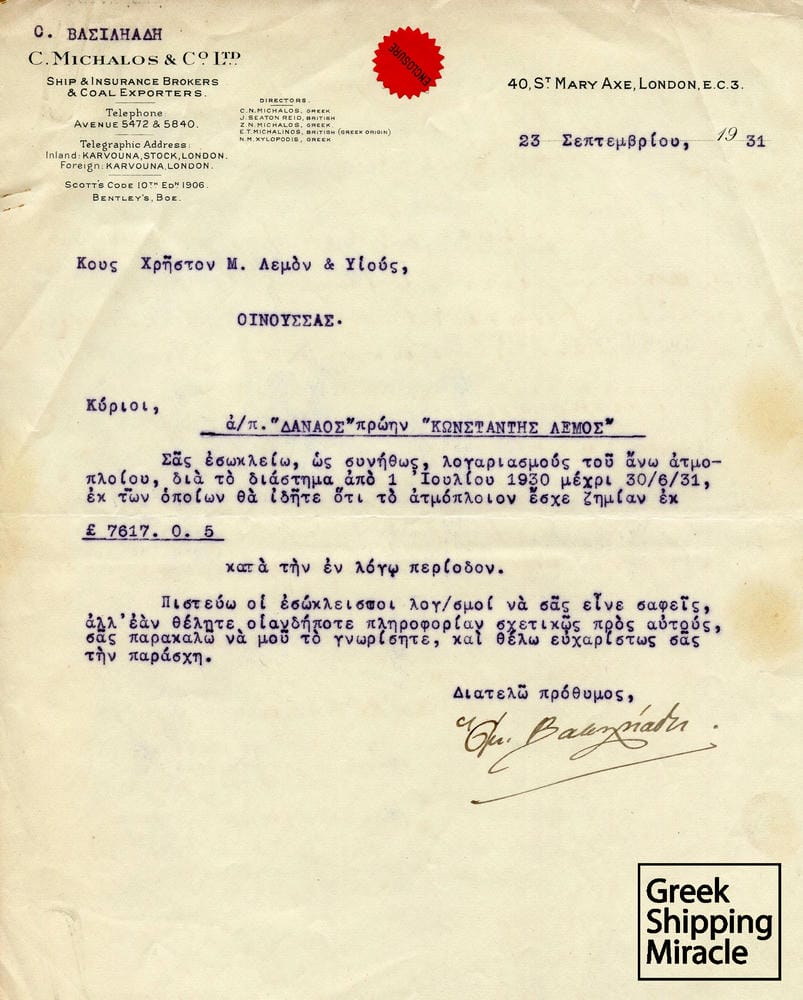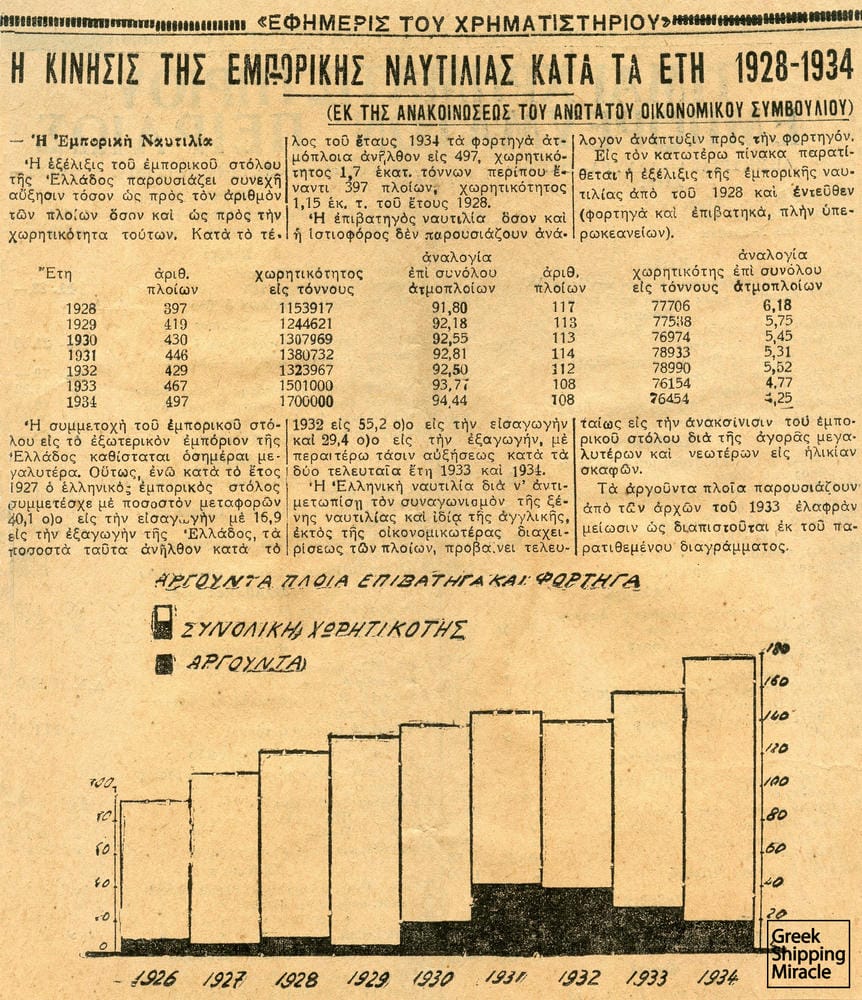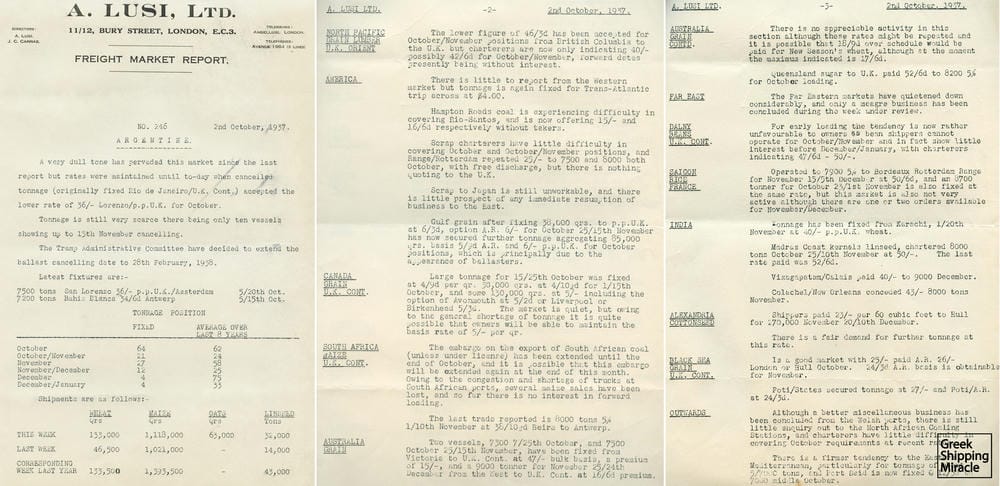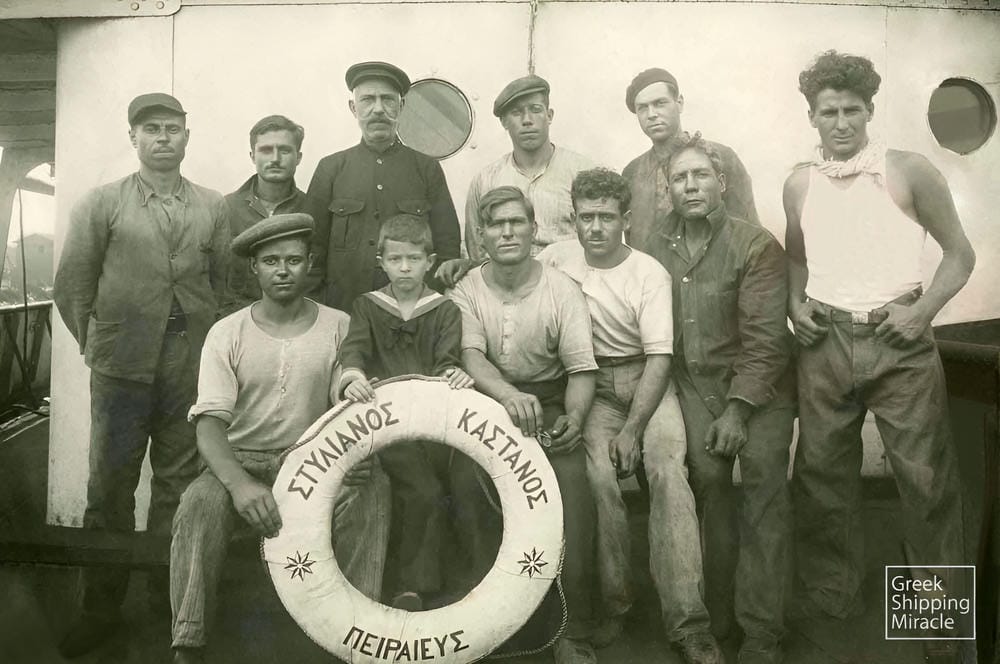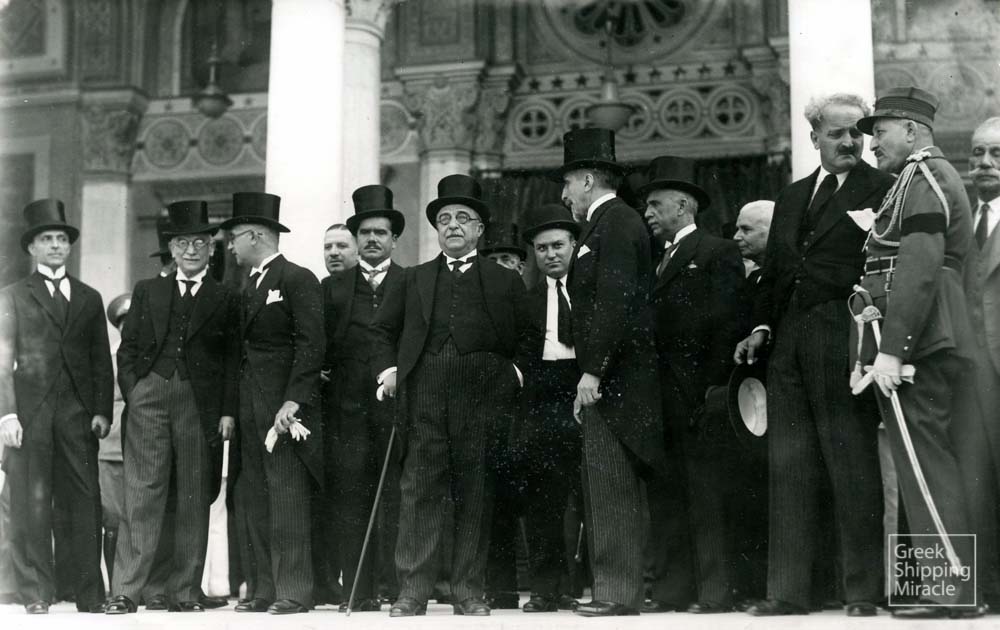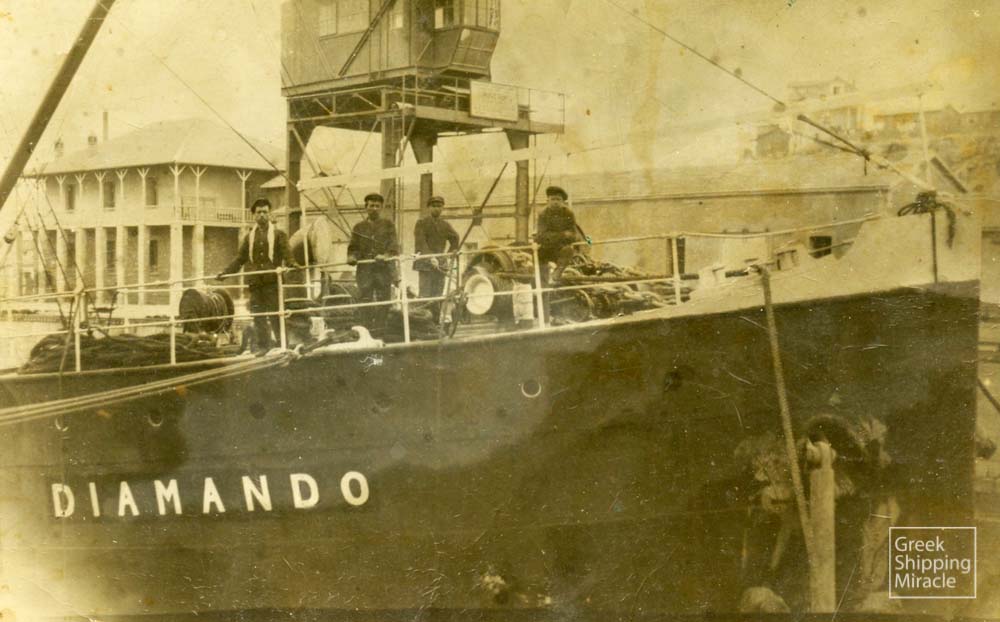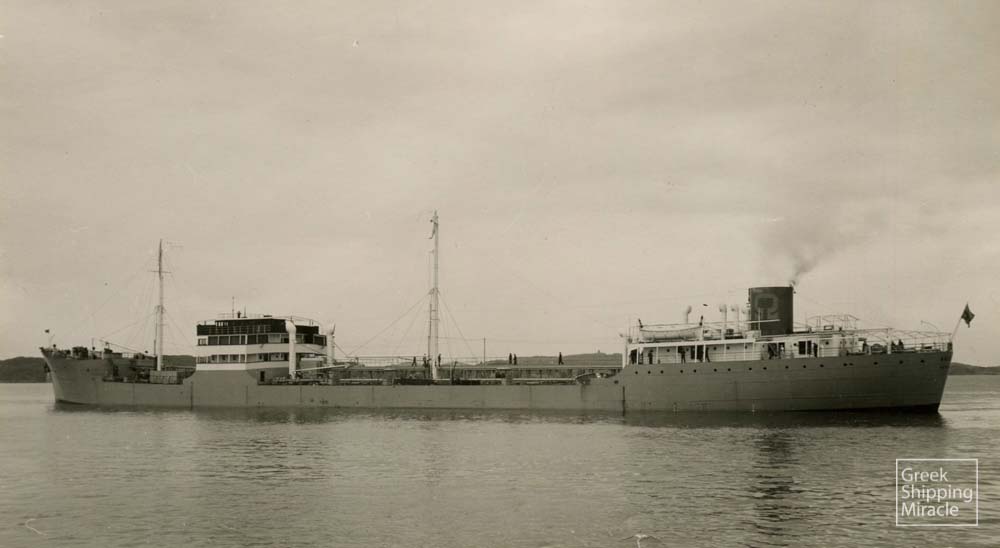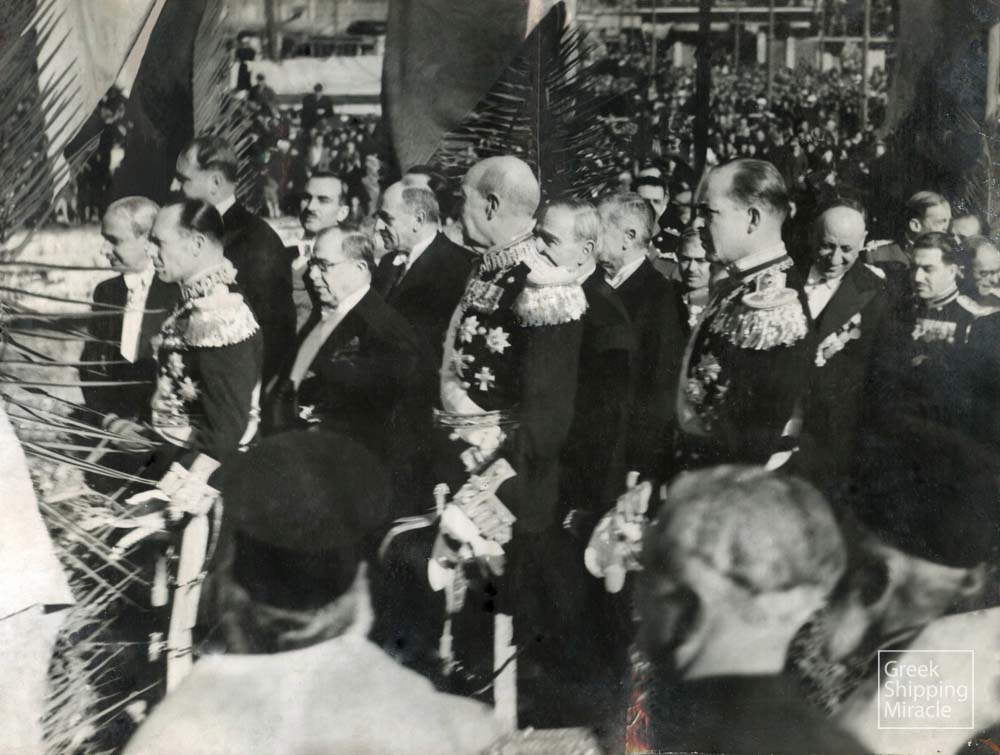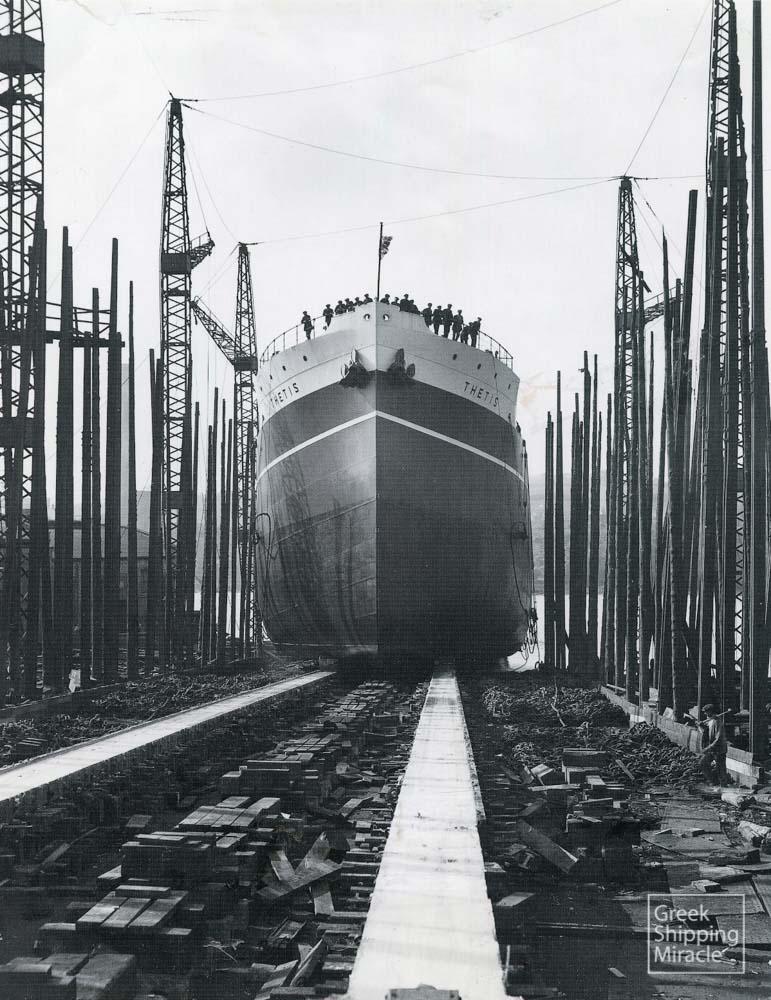From a Crisis to a War (1930-1939)
The global crisis that broke out with the Wall Street Crash in 1929 was interminable. It tormented the shipping industry for many years, while the exit from the recession was an extremely slow process.
The causes of the crisis began with the end of WWI, when most countries began to adopt policies of economic self-sufficiency. Examining their own economy, they sought development through their own production sources, greatly limiting international trade, as well as imports and exports. However, the drastic reduction in global consumption, especially in large countries such as India and China, in conjunction with diversified trade relations by the new regime in Russia, set new standards in the global economy. The War had a great impact on the political stability of many European countries, changing their trade policies. In fact, the appreciation of the role of merchant marine in wartime, led not only to the strengthening but also to the establishment of several new national fleets.
At this time of radical changes, the Greek shipping industry, solely serving the transportation needs of third parties, seemed to be almost condemned. During the course of such a crisis, the future of a fleet comprising mainly of over-aged steamers, seemed to be heading towards scrapyards or, under the best circumstances, at lay-up berths that had already started being occupied by numerous Greek ships.
However, it was not only the Greek shipping industry that was affected by these serious problems, since its financial exposure was relatively modest compared to that of other countries. Perhaps, for the first time, British owners were faced with an unprecedented crisis that threatened the foundations of their powerful maritime industry. British banks, who had generously supported the development of a huge British commercial fleet and consequently had been instrumental in developing a great shipbuilding industry, started demanding the sale of heavily indebted vessels. This led to massive sales of entire fleets, resulting in the complete collapse of ship values.
While the UK government was seriously considering protective measures for its shipping industry, which were eventually adopted, in Greece shipping was still treated with indifference by the government. Under the tolerance of the state, the seafarers’ unions were constantly asking for wage increases and various privileges. This unfortunately ended up adding burdens onto Greek ships at during a period of serious crisis, and therefore undermined the status of Greek seafarers themselves. The cases of insubordination multiplied on board Greek steamships. At the same time, bureaucracy for the settlement of various issues concerning ship operation was at its peak. Even worse, the state, acting beyond logic, imposed a special tax on imaginary profits at a time of massive losses and disasters. With this bleak picture prevailing, Greek shipowners addressed a memorandum to Prime Minister Venizelos in September 1932, informing him about the problems that had led to the use of the Panamanian flag on many newly acquired vessels.
Venizelos, however, did not have the time to respond to this memorandum as two months later Panaghis Tsaldaris was sworn in as Prime Minister. Subsequently, the Union of Greek Shipowners had no other alternative but to submit to the government a resolution by its members stating that it was no longer possible for them to operate their fleets under the Greek flag. Tsaldaris reacted immediately and following brief meetings held between shipowners’ representatives and the Minister of Navy with the Director of the Division of Merchant Marine Affairs, it was decided that a new, drastically reduced payroll should be adopted for all seafarers. Signed by the majority of the seafarer’s unions in April 1933, it went on record as the “hunger payroll”, but at the same time it allowed Greek-flagged ships to remain competitive. As a good-will gesture by the shipowners, several of the ships that had been registered in Panama were placed under the Greek flag. Due to these developments, Greek shipping was still facing problems, as a large number of seafarers had to be treated following continuous outbreaks of sickness and injuries, making unjustifiable claims that eventually forced British insurers to take action at the end of 1935.
Greek owners were aware from the start of the crisis that they did not have the luxury to wait for the freight market to improve. Time was not on their side as their fleets comprised mostly of over-aged ships. Those vessels would not be easily reactivated after being laid up so long, so they began to consider replacing them with newer tonnage.
At this critical stage, Manuel E. Kulukundis, heading the largest Greek shipping office in London, devised a realistic plan to dispose of old steamers and have them replaced with newer ones. As most of the Greek ships were not highly leveraged, the plan found support among bankers and most Greek steamers were eventually replaced. Thus, when the market began to improve in 1934, Greek shipping operated a more dynamic, qualitative fleet, enabling it to successfully face competition from other nations which had in the meantime taken protectionist measures in order to safeguard their shipping industries.
Despite the gradual improvement of the market, many issues affecting ship operations remained unsolved. Consequently, an International Maritime Conference was set up in London on 14 January 1935 with the participation of nations from around the globe. During the conference, a plan for the rationalization of the shipping industry was put in place aiming at the improvement of the market by adjusting the world fleet availability according to global supply and demand. At this point, however, only few countries were ready to cooperate and Greece was one of them.
Following an initiative by Manuel Kulukundis, a meeting between British and Greek shipowners was held on 16 January 1935. The Greek owner presented to his British colleagues a plan for addressing market problems encountered in grain transportation from the Plate of Argentina to Europe. The British adopted the proposed plan, which became known as the “minimum rate scheme” and, despite various obstacles that were encountered during its operation, several other countries adopted it as well, boosting the freight market. The Italian-Abyssinian war in October 1935 also acted as a catalyst in further strengthening the shipping markets. The procedures that were followed for the adoption of the plan led to the establishment of the Tramp Shipping Co-operation Committee, an informal body whose role was to monitor adherence to regulations. This was in essence the precursor to the Greek Shipping Co-operation Committee that provided invaluable service to the development of Greek shipping over the course of the next decades.
The gradual momentum gained by the market led a number of powerful Greek shipowners once again to the British shipyards, placing orders for ships that started being delivered in 1936.
In July 1936 yet another local war broke out, this time in Spain. Throughout its duration, many Greek vessels were lost whilst Franco’s forces withheld others. In the same year, Greek shipping recorded one of the most significant milestones in its history – the establishment of an autonomous governing body.
Greece had been in constant political turmoil for some time. Venizelos passed away in 1936, Tsaldaris was overthrown, whilst George Condylis had declared a dictatorship in October 1935, abolishing democracy and preparing a referendum to reinstate monarchy. On 4 August 1936, however, it was Ioannis Metaxas, who established a dictatorship, changing the political scene in the country once more. Coming from a military background, he foresaw the clouds of war over Europe and began to prepare the country for this eventuality. Being fully aware of the importance of the merchant fleet at wartime, he immediately started organizing and strengthening the shipping industry. He founded an under-ministry of Merchant Marine, putting at its helm Deucalion Rediadis, a distinguished lawyer. A few months later, he established the Hellenic Chamber of Shipping with George E. Embiricos, its first elected president.
The violation of the Plate Agreement by several shipowners and the inability of industry representatives to persuade the under-ministry of Merchant Marine to take appropriate measures to combat the situation, led a delegation of shipowners to Metaxas himself. They urged him to adopt suitable legislation in order to compel all Greek owners to comply with the scheme’s provisions agreed upon with their British colleagues. Metaxas acted immediately and, from 12 September 1938, the implementation of the plan was obligatory by law to all owners. At the same meeting, he publicly declared for the first time that if Greece ever went to war, it would never be against Britain.
At this time however, Europe had already found itself under the shadow of an imminent conflict, gradually leading to the degeneration of international agreements. Protectionist measures intensified and the British began to abandon liberalist ideas. The priority line for loading Plate cargoes was abolished by the Committee, giving preference to British ships.
The Spanish Civil War ended in April 1939. A few months later, on 3 September 1939, another war broke out, leading to an unprecedented global conflict that caused havoc and destruction. The following day, the Greek vessel KOSTI was destroyed after hitting a mine, while the Tramp Shipping Co-operation Committee notified with a concise telegram the abolition of the Plate scheme.
A month after the declaration of War, the neutral Greek steamship DIAMANTIS was torpedoed by a German submarine and sunk off the British coast. The nightmare for Greek shipping had begun.
